Is it worth it?
IBsmilin
11 years ago
Related Stories
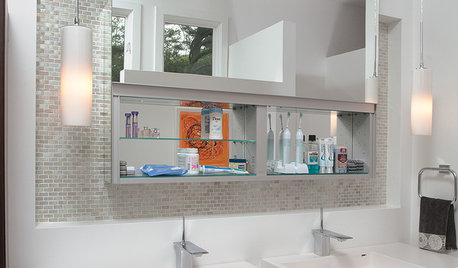
LIFEYou Said It: ‘Or Is It Just Me?’ and Other Houzz Quotables
Design advice, inspiration and observations that struck a chord this week
Full Story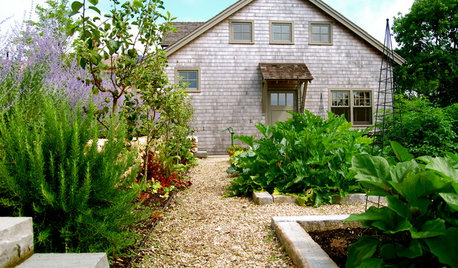
LIFEYou Said It: ‘What’s Your Time Worth?’ and More Houzz Quotables
Design advice, inspiration and observations that struck a chord this week
Full Story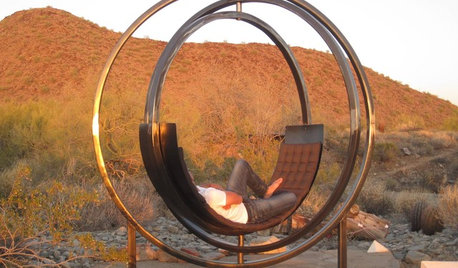
GARDENING AND LANDSCAPINGIs It a Gyroscope or Sculpture? Nope, It’s a Chair
With an inner ring that rotates 360 degrees, this student-designed seat is positioned to turn some heads
Full Story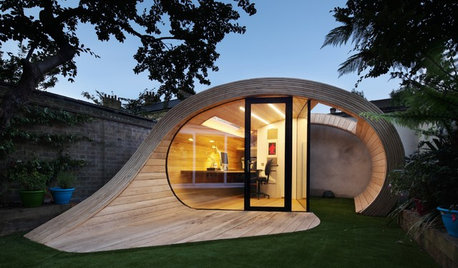
OUTBUILDINGSIs It a Shed? An Office? Neither — It’s a ‘Shoffice’!
This sinuous structure in a London backyard supports gardening and writing in a most unusual fashion
Full Story
LIFEYou Said It: ‘It’s Important to Wait’ and More Houzz Quotables
Design advice, inspiration and observations that struck a chord this week
Full Story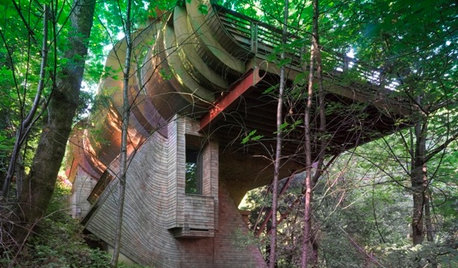
LIFEYou Said It: ‘It’s Different ... But Then, Aren’t You?’ and More Wisdom
Highlights from the week include celebrating individuality and cutting ourselves some decorating slack
Full Story
MATERIALSWoodipedia: Is It Cherry or Is It Alder?
Learn the differences between these two wood types, as well as costs, sustainability and a caution about finishing
Full Story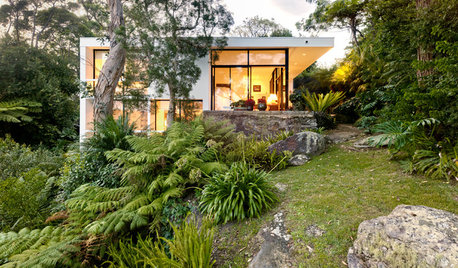
THE ART OF ARCHITECTUREHow to Make Your House Feel at Home Where It Is
Take cues from nature for placement, materials, shapes and patterns, for a house that sits well in its surroundings
Full Story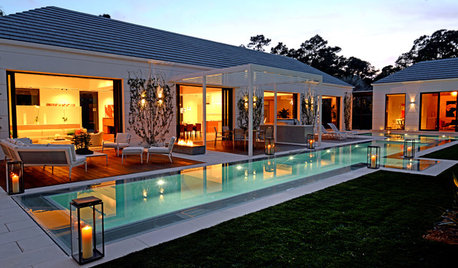
CONTRACTOR TIPSBuilding Permits: When a Permit Is Required and When It's Not
In this article, the first in a series exploring permit processes and requirements, learn why and when you might need one
Full Story
GREEN BUILDINGThe Passive House: What It Is and Why You Should Care
If you don’t understand passive design, you could be throwing money out the window
Full StorySponsored
More Discussions






Creativeguy_z6_CT
sweetquietplace
Related Professionals
Beavercreek Landscape Architects & Landscape Designers · Glen Ellyn Landscape Architects & Landscape Designers · North New Hyde Park Landscape Architects & Landscape Designers · Port Royal Landscape Architects & Landscape Designers · Azalea Park Landscape Contractors · Live Oak Landscape Contractors · Matteson Landscape Contractors · Mequon Landscape Contractors · Mercedes Landscape Contractors · Panama City Beach Landscape Contractors · Round Lake Landscape Contractors · Silver Firs Landscape Contractors · Braintree Driveway Installation & Maintenance · Brea Driveway Installation & Maintenance · Lakeland Driveway Installation & Maintenanceglib
foolishpleasure
nancyjane_gardener
nancyjane_gardener
lolauren
IBsmilinOriginal Author
nancyjane_gardener
soilent_green
TheMasterGardener1
defrost49
Creativeguy_z6_CT
mandolls
planatus
Mark
IBsmilinOriginal Author
gardener_sandy
sunnibel7 Md 7
KatyaKatya
Lempianna
veggiecanner
kentstar
zzita
yukkuri_kame
stuffradio
mrdoitall
mrdoitall
mrdoitall
jll0306
IBsmilinOriginal Author
luvncannin
Poolgoddess67
Raw_Nature
brittanyw
lucillle
Raw_Nature